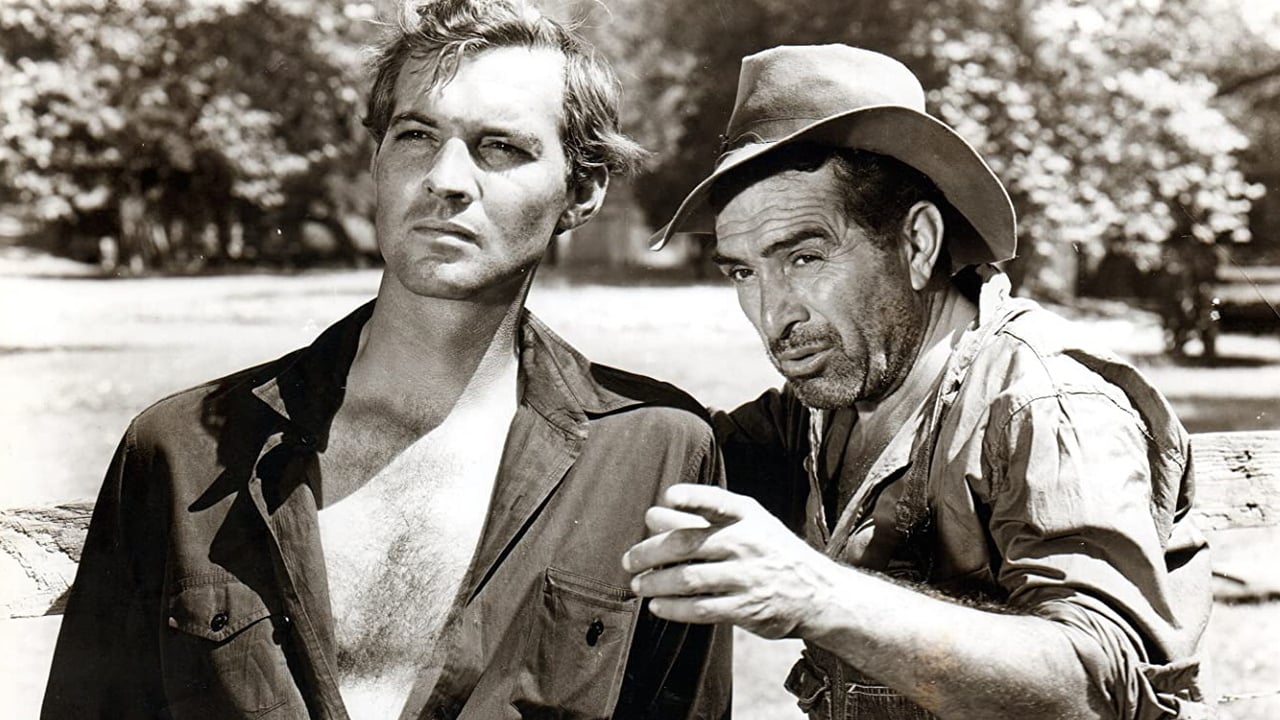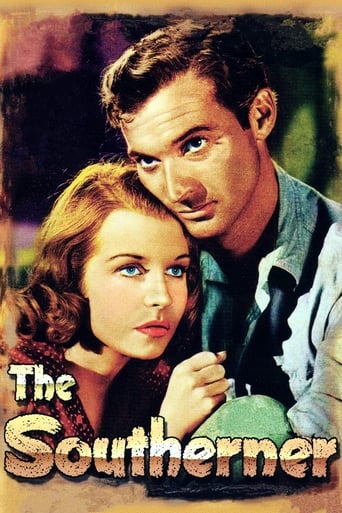

Good movie to make the point of hard work, luck, breaks, and how to never give-up. It all stresses to be grateful for what you do have. This is a raw non-negotiable movie meaning this happens and is happening all over the world. One wonders how billionaires can be numb to this. The people in this movie would have made good use with a warm coat, blanket and some food for the hard times. How much could that cost anyone? It is wise to tend to our own affairs but if we find ourselves doing well enough, lend an eye and an ear to your neighbors welfare. Remember no one got to where they are without the help of others. This could be......
... View MoreCopyright 10 August 1945 by Loew-Hakim, Inc. Presented by Producing Artists, Inc. Released through United Artists. New York opening at the Globe: 25 August 1945. U.S. release: 18 May 1945 (sic). No fixed U.K. release. Australian release: 13 June 1946. 8,287 feet. 91 minutes. (Available on a very good VCI DVD).SYNOPSIS: Sick of working for others, a young farm-hand attempts to go it alone. He moves his family to a derelict shack on an idle farm, but his cotton crop is ruined by a flood.NOTES: Nominated for the following prestigious Hollywood awards: Directing, Jean Renoir (won by Billy Wilder for Lost Weekend); Music Scoring of a Drama or Comedy (won by Miklos Rozsa for Spellbound); Sound Recording, Jack Whitney and General Service Co. (won by Stephen Dunn for The Bells of Saint Mary's).The film did not make Bosley Crowther's New York Times Ten Best, but it did gain a place in his long supplementary list of "mentionables".Jean Renoir for The Southerner: Best Director of 1945 — National Board of Review.The Southerner placed number three on the National Board of Review's "Ten Best" (after The True Glory and Lost Weekend).COMMENT: Beautifully photographed in starkly realistic natural settings, this is an inspiring if somewhat downbeat account of share-cropping in the dusty south. Although they are still recognizably Hollywood types, Zachary Scott and Betty Field are convincing enough as the bedeviled farmers. However they do tend to leave the running to the support players, particularly J. Carrol Naish (who has one of his best roles ever as an embittered, mean- spirited neighbor); Norman Lloyd as a bizarrely vicious half-wit; Noreen Nash as a kindly if vamping sympathizer; silent star Estelle Taylor (making her first movie appearance since 1932) as an opportunistic bar-fly; Nestor Paiva as a thief-thug of a barman; and of course Percy Kilbride in his element as the local storekeeper.I thought that Beulah Bondi, despite her faultless make-up, tended to over-do the selfishly ever-complaining nanny, and that the kids were just a little too squeakily clean, if otherwise perfectly natural.It can been seen that this is no dull quasi-documentary, but a richly characterized tapestry of Southern living. Packed with incident too. (Perhaps a little too over-weighted with thrills for complete realism, but I'm not complaining). The producers seem to have taken astute advantage of a natural disaster to film the flood scenes (good to see that no stock or newsreel footage at all has been used) which are fascinating yet terrifying to behold. Man-made incidents are not wanting either as Scott and Kemper systematically wreck Paiva's bar, and as Scott fights with the mercilessly bullying Naish. Superlatively yet unobtrusively crafted in all departments, The Southerner is an unusual yet highly compelling drama about "ordinary folks", with characters and settings well away from the usual Hollywood clichés.Indeed, so realistic is the background, it comes as something of a surprise to learn from Renoir's autobiography that the movie was actually photographed in a cotton field "not far from the small town of Madera, California, on the bank of the San Joaquin River. The situation was ideal. All that was needed was for Lourie to build a tumbledown shack and for the shooting to take place while the cotton was in flower."
... View MoreSam Tucker (almost sounds like a name a country-based folk song from the 30's or 40's would be about, not far removed from Dan Tucker) has worked the land for other people, but his uncle as he's dying tells him to work for himself. He takes his word more than just to heart, he goes for it and takes his family (wife, two kids, and the uppity grandma) to live in what is basically a shack on a farm where the land is not too expensive. Actually it's inexpensive for a reason: the well doesn't work so Sam has to go next door to the neighbor who doesn't really take kindly to a new family next door (Norman Lloyd is his, uh, son or nephew or something), and he tries to get into farming for cotton.He doesn't have much money or things like tractors, but he's got two hands, a good body and two mules, right? He can make it work... maybe. And this is the scenario that drives one of the few English language films that Jean Renoir made over the years. He comes to this part of America - and, though uncredited, William Faulkner contributes to the script for some of that good ol' fried-Southern talk for authenticity, which is felt - and sees things in a way that is probably truer to the American spirit than some might think some French guy would make.This is all about cutting out your own path and that "pulling yourself by your own bootstraps" mentality which has become a cliché (somewhat on the Right actually, or Libertarian at least) and not going for the path of least resistance, that thing called a "job" for someone else. While one might want to criticize Sam for doing such a hasty action, the drama from the film, which comes in both the personal (his son gets sick from, you know, not having a friggin' cow around at first, and from a lack of vegetables), and the more natural (a big storm and a flood will basically do one in if the cotton's just there and not farmed yet), feels like its own kind of organic criticism.And yet Renoir never judges, and the characters who try to question Sam's motives sound reasonable enough like from his brawny, rowdy friend (who at one point gets into a bizarre, over the top but rather uproarious bottle-throwing fight with a bar owner in the local town, a memorable set piece by far). It's pure in its simple view of this man and how he wants to make a good life for his family, even if he is "gambling" so to speak with the land. There's this feeling to much of Renoir's filmmaking that emphasizes what good can come from this Earth that is farmed and the hard work that goes in to it; there's a few brief dips into religion - at one point Sam stops in his tracks and looks up and talks out loud praying to God, which is a fairly static shot but well acted enough - but mostly it's about having some kind of spiritual, even existential piece of mind: Sam knows the hassles and he knows the drawbacks, and if has to fight for it (and he does) he will.There are caricatures, to be sure, like the old grandmother who spends most of the time complaining (in a move that might make John Ford cringe, she stays out by the vehicle as a storm comes in when the family first comes to the new house, and finally comes in reluctantly for her coffee), or a few of the townspeople or Lloyd's character (even the neighbor's daughter, with some off-and-on come-ons to Sam, is something of a type), but it never stops the film much dead in its tracks. There's a flow to this movie that, like several of Renoir's other films, has something closer to poetry than a hard-lined, traditional narrative arc that has to his A-B-and-C. There's ups and some major downs, and moments where Sam really does doubt himself, and by the conclusion there's this really wonderful moment where Sam goes from giving up to coming back around when he sees what he's accomplished.In short, The Southerner has its flaws in some of the acting, but the execution of this story and how deeply felt it stays to what its trying to show about a rural section of American (or really world) life is admirable and exquisite in its way. Its art is plentiful even as it seems slight and conventional at times, which is a minor miracle especially for someone who's coming to this place anew. 8.5/10
... View MoreDuring his American exile period Jean Renoir turned out some really interesting films. The best of these is The Southerner which earned an Oscar nomination for Best Director. This film is clearly the ancestor of that Sally Field classic from the Eighties, Places In The Heart.The Southerner is the story of a poor white family in the rural south named Tucker. Zachary Scott who wants very much to farm on his own land takes an option from Paul Harvey and plants cotton on it. He was advised by friend Charles Kemper that it's a whole lot easier to be working in a factory or working as a farmhand on someone else's land as you're guaranteed a paycheck and you won't starve.But that goes against that great frontier tradition of 40 acres and a mule and the people who homesteaded and developed their own land. It's an ingrained American dream, not like the Europe where Jean Renoir was taking a hiatus from due to World War II. In fact The Southerner is a great tribute to Renoir's ability to soak up American culture and values. He really depicts the rural American South quite well. What's not shown here are black people, but in point of fact they would not be sharecropping near any poor white people at that time. Still the lack of them is a major flaw in the film.Both Zachary Scott and Betty Field do a great job at playing these very simple, but indestructibly sturdy Tuckers. Their two children live with them as well Scott's ancient grandmother Beulah Bondi, made up to way beyond her years even then. J. Carrol Naish has a nice part as a bitter neighbor who resents the fact that Scott might just make a go of it on land that cost him a couple of family members. Former silent star Estelle Taylor plays Naish's daughter and old time vaudevillian Jack Norworth has a small role as the local physician.Norworth's part is involved with Scott and Field's son coming down with pellagra, common among the poor people of the south who did not get a decent diet. Fresh milk every day went a long way and that's the reason that schools started giving out milk to the children way back in the day and still do.Besides a nomination for Renoir, The Southerner also received Academy Award nominations for Best Music Scoring and Best Sound. Sad to say for Renoir his film did not get to take any Oscars back to France when he returned.The Southerner ought to be seen back to back with Places In The Heart which has black people very prominent in the cast and does not shy from racial issues. Still even with that major flaw The Southerner is a deserved film classic.
... View More